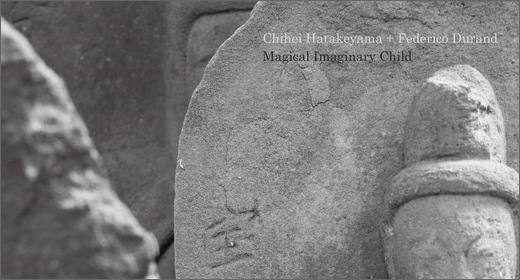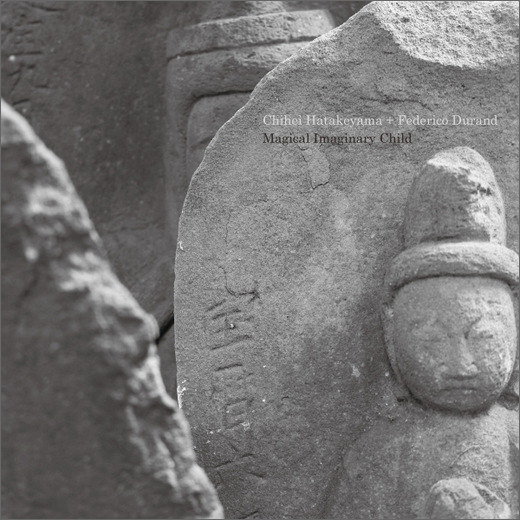Equipped with only cassette player and guitar, respectively, the duo first lay low, moving unmarked through a sunken lane in the landscape, shoulder-high, green embankments veined with knotty roots, worn by the erosion of rolling tape hiss. Then they took flight.
While visiting Japan, Argentina’s Federico Durand spent some time with Chihei Hatakeyama. Equipped with only cassette player and guitar, respectively, the duo first lay low, moving unmarked through a sunken lane in the landscape, shoulder-high, green embankments veined with knotty roots, worn by the erosion of rolling tape hiss. Then they took flight.
Each of the quartet of tracks on Magical Imaginary Child is named after a woman, names from the four corners of the world, whether magical or not depends on the imaginations of Hatakeyama and Durand, and the listener. Each is portrayed as an imperfect angel, or perhaps rather an angel in an imperfect heaven. Piano-like looplets measure footsteps, slowly shifting shades of dark grey above on “María,” until the guitar begins to sweep across it like a lone shearwater, pearly underwings flashing against the backdrop. “Nami” glides over the patchwork farmland through which Hatakeyama and Durand just crept, plucking power lines like the strings of a bass.
The amplified “th-th-thuck” of the tape recorder ruffles “Cordelia”‘s wings, puts her a bit off balance, and telegraphs a certain distress, but she also resonates most deeply—the “flawed” are so much easier to love. A change in perspective, in climate: In Arctic cold, under a ropey-clouded, Nordic sky, “Tove” blows steam through a scarf-wrapped nose.
Tip: Ordering the CD direct from Bandcamp prolongs the spectral ecstasy in the form of a bonus CDR containing the sixteen-minute “Circe.” Circe—the goddess of magic!
Magical Imaginary Child is available on White Paddy Mountain.




























